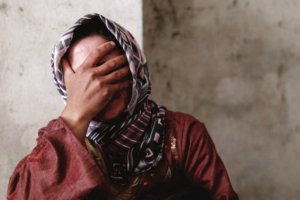 Today, the International Federation for Human Rights (FIDH) releases a briefing paper entitled, “Violence against women in Syria: Breaking the silence”. Based on meetings with women refugees in Jordan in December 2012, the paper highlights specific forms of violence targeting women in Syria.
Today, the International Federation for Human Rights (FIDH) releases a briefing paper entitled, “Violence against women in Syria: Breaking the silence”. Based on meetings with women refugees in Jordan in December 2012, the paper highlights specific forms of violence targeting women in Syria.
The FIDH delegation visited three refugee camps, Al Zaatari, King Abdullah Park and Cyber City and interviewed 80 refugees living outside formal camps in Amman, Rusaifa, Dhleil and Sama Sarhan (Zarqa Governorate).
” It remains extremely difficult to measure the extent of crimes of sexual violence, in particular due to the stigma surrounding such crimes ” declared Souhayr Belhassen, FIDH President. “All those interviewed reported having witnessed or heard about cases of sexual violence and said that the fear of being raped had motivated their decision to flee the country” she added.
The Syrian women interviewed all gave accounts of rape and other forms of sexual violence committed by pro-government forces during house searches, following arrest at checkpoints and in detention. There were also accounts of such crimes having been committed by antigovernment armed groups. Many of those interviewed also spoke of the risk of women being abducted, by all parties to the conflict, in order to obtain information or as bargaining chips for the release of prisoners.
Women who talked to FIDH indicated that most of them were subsequently victims of exclusion. According to several women and organisations providing support services, survivors of rape are sometimes forced into marriage, in order to “save family honour”.
Risks of stigmatisation and rejection of survivors impose a culture of silence, preventing women victims of crimes of sexual violence from reporting them. As a result, the vast majority of those in need of medical and psycho-social support do not have access to such services, not always available outside formal refugee camps.
FIDH calls on:
All parties to the conflict: to immediately cease all forms of violence, including sexual violence; and to issue clear orders against the perpetration of sexual violence through their respective chains of command.
States supporting the Syrian regime: to urge the Syrian regime to immediately end its policy of repression, indiscriminate and widespread attacks and serious human rights violations against civilians, which could amount to war crimes and crimes against humanity.
All States (in particular those supporting the parties to the conflict): to call upon all parties to the conflict to respect international human rights and humanitarian law and immediately cease violations, including gender based violence and all forms of violence against women; and to investigate and prosecute, where possible, including under the principle of extra-territorial jurisdiction, those responsible for crimes against humanity and war crimes, including sexual violence and other types of violence against women and girls perpetrated in Syria.
UN Security Council: to refer the Syrian situation to the ICC and encourage efforts to fight against the impunity of those responsible for crimes against humanity and war crimes, including those relating to sexual and other types of violence against women and girls in Syria.
The State of Jordan and UN agencies and service providers in Jordan: to take into account the particularly acute barriers to the disclosure of sexual and other forms of violence against women faced by Syrian women and girls and the need to tailor outreach and protection services accordingly; and to take proactive measures to reach survivors of sexual violence and ensure access to appropriate health and other services, particularly outside official refugee camps.

